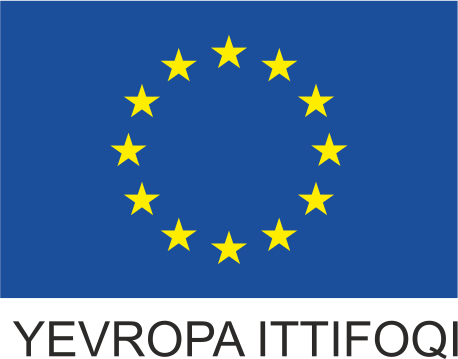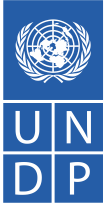Licensing reform rarely occurs in isolation. Often, improving the business licensing system is just one item on a country’s reform agenda to improve the business and investment climate. Complex, repetitive, lengthy, expensive, and multi-stage procedures and processes place a heavy burden on businesses, which consequently becomes a serious obstacle to doing business in many countries. Therefore, governments trying to improve the business climate in their countries place modernization of the licensing system at the very heart of their reforms, which will significantly reduce the administrative burden on businesses.
In order to create broader conditions for the activities of business entities through a radical improvement of licensing and permitting procedures and the elimination of bureaucratic obstacles, as well as carrying out institutional reforms by optimizing and automating processes in the field of permitting activities, in August 2020, the President of Uzbekistan signed a decree on improving licensing procedures for legal entities and individuals, and the Law “On Licensing, Permitting and Notification Procedures” and government decisions on licensing procedures and permitting procedures through an electronic system were adopted, which made it possible to work out the practice of issuing the maximum number of permits, licenses and notification procedures available for registration in electronic form.
To reduce the bureaucratic burden and the risk of corruption, UNDP and the EU, in cooperation with the Ministry of Justice, within the framework of the joint project “Improving the Delivery of Public Services and Improving the Level of Governance in Rural Areas of Uzbekistan”, supported the government in digitalizing the licensing system by creating an online licensing platform – a set of information systems “License” for the provision of interactive services in the field of licensing and permitting procedures. For the convenience of IOS and Android users, mobile applications have made it possible to use the services. Through this mobile application, it is possible to issue license and permit documents, obtain information about license and permit documents belonging to the organization through the account, search for information from the license register and other options.
The License information system has created a single platform for entrepreneurs to submit applications for licenses, permits and notifications, which allowed business representatives to issue permit documents without leaving home. To do this, they only need to submit an electronic application, eliminating the need to spend time and resources on scanning and printing a large number of documents, which has simplified processes, reduced costs and reduced dependence on paper.
Due to the automation of the procedure, the average time for issuing a license and permits has been reduced by three to four times, the number of documents required to obtain licenses and permits has been halved, if previously an application for a license was considered for up to two months, now it takes 5-8 days.
The transfer of government services for issuing licenses and permits to electronic form with the ability to submit applications through the electronic licensing system “License” is certainly a positive, progressive step in the interaction of businesses and licensing organizations. Practical business experience shows that the digitalization of government services in this part disciplines licensing organizations in terms of compliance with the deadlines of procedures. For example, the electronic licensing system “License” provides for the ability to suspend the term of service by the licensing authority in order to allow the applicant to eliminate comments, which helps to avoid formal refusals and repeated procedures.
The old system is decentralized and paper-based
This is a significant improvement over the previous decentralized licensing system, where all information on issued licenses and permits was scattered across various institutions in different locations and was only available in paper form. Under the traditional system, only the responsible organizations in the relevant regions and districts were responsible for issuing licenses and permits. However, some of the licensing authorities had their own internal autonomous information systems.
As part of the Joint Project, the Ministry of Justice was supported in the Business Process Reengineering (BPR) of approximately 31 of the 266 licensing services. BPR involves a radical redesign of core procedures to achieve significant improvements in productivity, cycle time and quality. 31 online services have been fully digitized and streamlined and are now available through the new License platform. Users can apply for a license, pay fees and track the status of their applications electronically, simplifying the process. This transparency of processes creates an incentive for licensing authorities to improve their performance by helping them track their performance indicators and build a rating of their efficiency. As a result, the process has become convenient, fast, simple and transparent for the entrepreneur.
Optimizing processes for smooth operation
Digitalization of licenses and permits is a response to overcoming the infrastructural bottlenecks created by outdated systems. The improvements have allowed individuals and legal entities to easily apply for the relevant license or permit and track the progress of their applications in real time.
Usmon Ochildiev, head of the private enterprise Usmon Ishonch Service 2009, located in the Surkhandarya region, had a positive experience with the new system. His company provides services for printing text and images on paper, polyethylene and other materials using digital technologies. The company also provides similar services for printing text and images for visually impaired people using digital printing technology and a combination of it with Braille.
Ochildiev recalls: “I recently submitted an application notification for printing activities through the license.gov.uz portal. My application was reviewed within one working day. Previously, it took a week or 10 days to obtain a permit. Sometimes I had to travel to Tashkent to submit the necessary documents. The new online system is really convenient. The payment process is also quite simple.” Since the portal’s launch in 2021, more than 370,000 online applications have been processed, saving applicants billions in fees and more than 750,000 sheets of paper. The top 5 categories of applications included:
- transport – 237,156 (64%)
- education and sports – 24,952 (6%)
- alcohol and tobacco turnover – 22,566 (6%)
- ecology and environment – 18,375 (4%)
- medicine and veterinary science – 16,287 (4%)
The notification system makes business even easier
The new government reforms also introduced a notification procedure, which replaces 44 licenses and 13 licensing procedures. For example, by notifying the authorized body, you can now start a business in the field of preschool education, concerts/entertainment, veterinary science and retail sale of alcoholic beverages. Registration of media has also been transferred to the notification procedure.
The ongoing reform of licensing and permitting activities in Uzbekistan includes not only the transfer of document processing procedures online, but also changes to the requirements themselves and the establishment of a specific list of documents that an entrepreneur must provide, while they must be justified and clearly understood by both regulators and businesses, which helps reduce the administrative burden on entrepreneurs.
The ultimate goal of this initiative is to integrate all state licenses and permits into the system, thereby achieving greater accountability and better data in this important area of public services.




